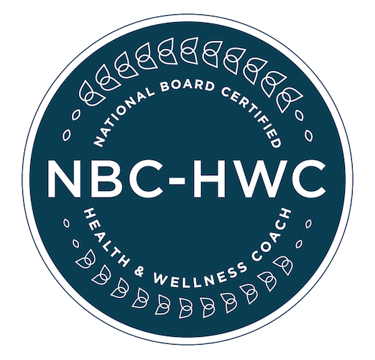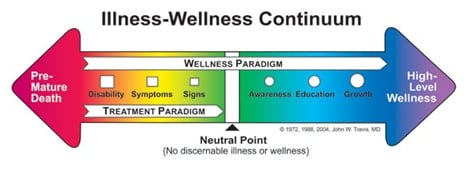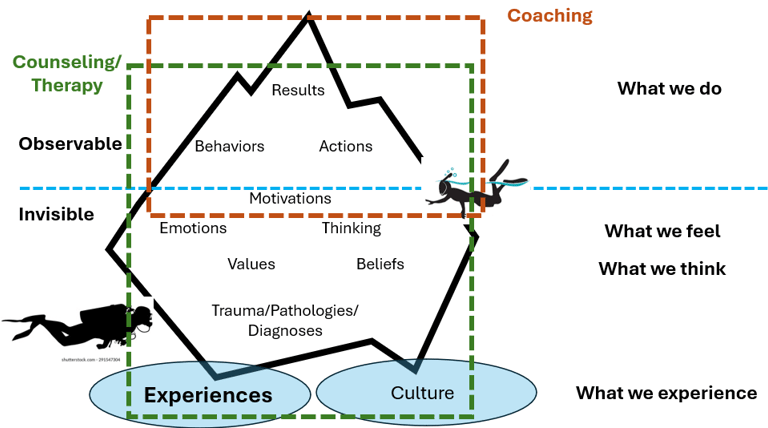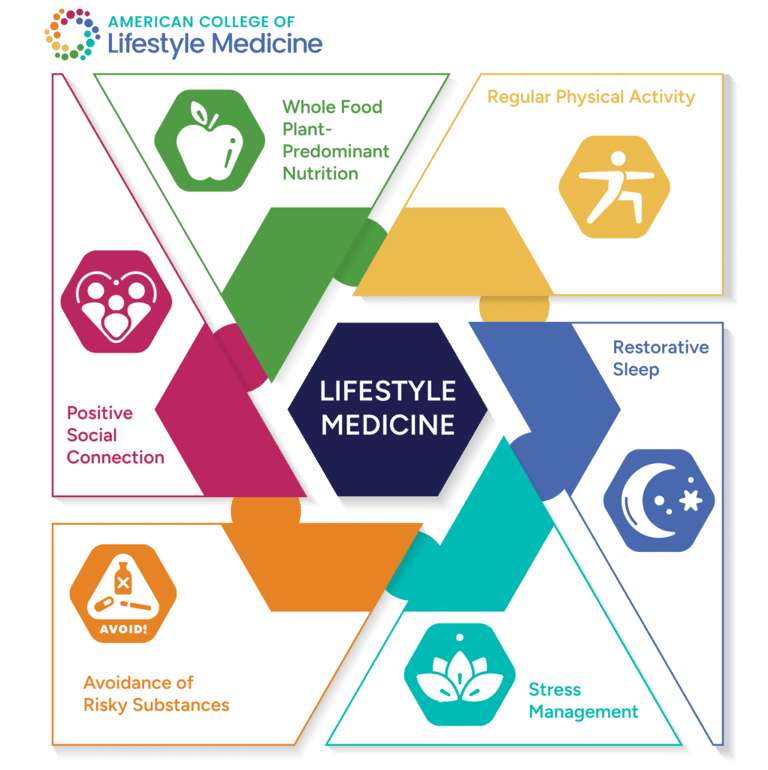Resources
Helpful and educational content by subject (stay tuned - work in progress)
The Therapeutic Value of Nature
Spending time in nature is linked to both cognitive benefits and improvements in mood, mental health and emotional well-being. Feeling connected to nature can produce similar benefits to well-being, regardless of how much time one spends outdoors. Both green spaces and blue spaces (aquatic environments) produce well-being benefits. More remote and biodiverse spaces may be particularly helpful, though even urban parks and trees can lead to positive outcomes.
https://www.apa.org/monitor/2020/04/nurtured-nature
DRAFT - more content on the way


What is a National Board Certified Health & Wellness Coach?
National Board Certified Health and Wellness Coaches (NBC-HWCs) are credentialed members of the healthcare industry who serve as behavior change agents and are trained to the highest standard in the profession. NBC-HWCs adhere to a robust code of ethics and operate within a strict scope of practice. As partners with clients in the behavior change process, NBC-HWCs empower, support, and guide individuals looking to enhance their well-being through self-directed lasting changes that align with their values.
National Board Certified Health and Wellness Coaches (NBC-HWCs) engage individuals and groups in evidence-based, client-centered processes that facilitate and empower clients to develop and achieve self-determined, health and wellness goals. Coaches assist clients to use their own insight, personal strengths, and resources to set goals, commit to action steps, and establish accountability in building an envisioned healthy lifestyle.




Coach or Clinician?
A helpful concept to understand what health and wellness coaches do is the Travis Illness-Wellness Continuum (see figure). Physicians and other clinicians are, for sure, interested in your wellness. However, perhaps by virtue of historical and current healthcare delivery models, they tend to specialize and spend a lot of their time in the Treatment Paradigm - addressing serious diagnoses, which impair normal functioning, and getting you to a Neutral Point where there's no sign of illness.
Coaches focus on getting you to the next level - moving from that Neutral Point toward High-Level Wellness.
Moreover, many people find themselves stuck in the liminal space somewhere between having an actual illness and thriving. You may not meet criteria for a medical diagnosis, but you also aren't flourishing. Psychologists refer to this in-between area as "languishing."
Healthcare providers diagnose and treat illness. However, many simply don't have the time or resources to address wellness - coaches can fill that gap.
(To be fair and clear, many providers do an excellent job of addressing wellness, it is simply becoming more difficult for them to do so in today's healthcare landscape.)


Coaching or Therapy?
In conversations about coaching, a frequent question is "What's the difference between coaching and counseling?" Or, "Should I see a coach or a therapist?"
A useful, if not oversimplified, illustration may help. Consider the difference between snorkeling and scuba diving. Both coaches and counselors are concerned with actions and behaviors. Most psychologists agree that the outward elements of how we show up for the world are just the "tip of the iceberg." While those things are on the surface and visible, there are many factors "below the surface" which must be considered to understand the entire situation.
Those things below the surface include motivations, emotions, thoughts, values, and beliefs. Sometimes there are serious underlying traumas or pathologies contributing to what is seen on the surface.
In this analogy, coaches can be thought of as snorkelers. Snorkeling does require skill and training, but typically stays near the surface. With practice, snorkelers can go below the surface to take a deeper look at what might be influencing things on the surface, but they surely will not stay there.
Counselors and therapists (and psychiatrists) can be thought of as scuba divers. They have significantly more skill and training to allow deeper and more prolonged explorations of what is below the surface.
Coaches are primarily concerned with actions and behaviors related to wellness. What is motivating one to change? What are some realistic, measurable goals we can implement to address desired changes?
Counselors and therapists are also very interested in these things, but they have the training and skill to assess functional impairment, diagnose causes, and develop treatment plans to achieve certain outcomes. They address questions like: Is a client/patient exhibiting symptoms that are significantly interfering with activities of daily living? Are there physiological imbalances which require medication? Is there serious trauma which needs to be processed?
The figure provided here is not perfect. Coaches do consider emotions, values, thinking and beliefs, they just specialize in addressing motivations as a means to positive behavior changes related to wellness. Counselors and therapists are also interested in overall wellness, they are just equipped to go deeper and explore causes and influences that might have much more serious causes.
The good news is that there is overlap in what coaches, counselors, and therapists want and work toward (the wellbeing and thriving of their clients/patients), and they can partner together to realize these goals.
The following article may also be helpful: Coaching vs Psychotherapy in Health and Wellness: Overlap, Dissimilarities, and the Potential for Collaboration


The Coach as Guide
Another helpful analogy to illustrate what health and wellness coaches do is the guiding paradigm. Let's say you're planning a trip to a challenging destination, maybe Mount Rainier. Reaching the top is achievable, but unless you're a trained mountaineer or have been there before, doing it alone is beyond your level of expertise. What you need is a guide. Guides typically have training and experience to help you reach a destination and perhaps do and see certain things along the way. They'll help you plan an itinerary, know what to pack, train for the expedition, and most importantly, accompany you on the journey - all of which will increase the likelihood you'll reach your goal, the summit.
However, six months before the trip, you fracture your ankle. You're not climbing mountains anytime soon. What you need is a doctor, surgeon, and maybe a physical therapist. They'll diagnose your injury, fix whatever is broken, and help you get back to a state of functional mobility. Only then will you be ready to turn your attention back to more challenging tasks.
Medical professionals address illness and injury. When you're physically capable and well enough, guides and coaches help you identify, set, and accomplish noteworthy and fulfilling goals.




Lifestyle Medicine
What is lifestyle medicine?
Lifestyle medicine is a medical specialty that uses therapeutic lifestyle interventions as a primary modality to treat chronic conditions including, but not limited to, cardiovascular diseases, type 2 diabetes, and obesity. Lifestyle medicine certified clinicians are trained to apply evidence-based, whole-person, prescriptive lifestyle change to treat and, when used intensively, often reverse such conditions. Applying the six pillars of lifestyle medicine—a whole-food, plant-predominant eating pattern, physical activity, restorative sleep, stress management, avoidance of risky substances and positive social connections—also provides effective prevention for these conditions.
Mountains to Sea Health and Wellness leans heavily on principles of lifestyle medicine in everything we do.


Midlife Wayfinding
Rationale:
Sports cars. Botox. Reckless and self-sabotaging decisions. Existential doubts. Feelings of underachievement and regret. Malaise. Languishing. Realization that there's more time behind you than ahead.
Midlife crisis anyone?
All joking aside, however you define the term, midlife is an interestingly curious time. Worse yet, no one really preps you for it and few people want to talk about it.
-----
“Thoroughly unprepared, we take the step into the afternoon of life. Worse still, we take this step with the false presupposition that our truths and our ideals will serve us as hitherto. But we cannot live the afternoon of life according to the program of life’s morning, for what was great in the morning will be little at evening and what in the morning was true, at evening will have become a lie.” -Carl Jung
-----
If you find yourself wandering in the midlife metaphorical wilderness, good news - you're not the only one and you're not the first to try to navigate these normal, developmentally-appropriate turbulent waters. Thankfully, wisdom abounds. For example, Viktor Frankl, 20th century psychiatrist, Holocaust survivor, and founder of the approach known as logotherapy, offers insight for this challenging life stage. Rather than being motivated by the desire for pleasure (Freud) or power (Adler), Frankl proposed that the primary motivating force for humans is the need for meaning. If meaning isn't found, a vacuum forms and existential frustration ensues. Existential frustration can present as anxiety, depression, and addictive behaviors. When this is the case, it's important to appreciate the dissonance for what it is - existential, not pathological; distress, not a disease; concerned with present and future beliefs and trajectories, not past traumas.*
So, how do we fill this existential vacuum? With meaning.
What provides meaning? Let's talk about it.
*There are differences between existential frustration and certain mental health diagnoses. If any of these things are significantly interfering with your ability to function normally or experience happiness, or if you have thoughts of harm to yourself or others, you should seek the help of a counselor, therapist, or other medical professional. If you have immediate, urgent concerns about yourself or others, dial 911 or 988.



Contact Us
Reach out for nature-based wellness coaching and support today.
Mountains to Sea Health and Wellness, LLC
Nature-based life, wellness, and stress management coaching
phone 864-710-9029
for more information:
© 2025. All rights reserved.


Email INFO.MTSHW@GMAIL.com




Photo credit: Scooter Kennedy
